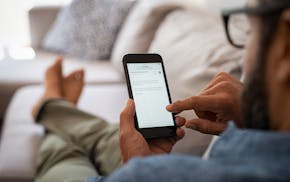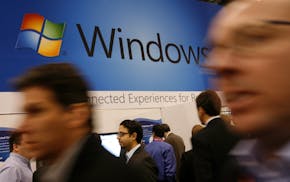Q: I recently returned to Australia after six weeks of traveling to Thailand, England and Scotland. I didn't take my laptop along on this trip because I had planned to use computers belonging to friends, or those in Internet cafes.
But in Bangkok, London and Edinburgh, I was denied access to my Hotmail e-mail account when I tried to sign in. I had no way to receive a special password that would allow me to sign in using a "foreign" computer. That meant I couldn't get information from my contact and address list.
What should I do when I travel overseas again?
Michael Crouche, Perth, Australia
A: You've encountered a serious Catch-22 in computer security: Microsoft blocked you from using your e-mail in order to make your e-mail safer to use.
Here's what happened. Microsoft has long been accused of lax security for its free e-mail service, Hotmail (it's now called "Outlook.com," but still uses existing Hotmail addresses). To counteract that, Microsoft put such stringent safeguards in place that Hotmail/Outlook became inconvenient to use while traveling in the United States, and nearly impossible to use while traveling internationally.
The safeguard was this: Anyone more than 300 miles from home who tried to use someone else's PC (each computer has an identifying number) to access a Hotmail/Outlook e-mail account needed a special one-time identifying code number to access the account. Microsoft would send the special code number to an alternate e-mail address (from another e-mail provider who didn't restrict travelers from using their e-mail), or to a cellphone via text message.
Microsoft said the extra security was for the protection of Hotmail/Outlook users, because it prevented unauthorized people from accessing and tampering with e-mail accounts, (which had been a problem in the past.) And, in truth, the concept wasn't wildly different from what credit card companies do to prevent fraud. If you charge something outside the geographic area where you live, the card company often will call you to verify that it was you who made the purchase.
But while Microsoft's intentions were good, its alternate e-mail idea was silly. Microsoft apparently didn't realize that most people aren't so tech-minded as to have multiple e-mail addresses with different providers. But at least in the United States, where people carry their cellphones, sending the special code via text message was workable.
But international travelers, who often leave their cellphones home rather than buy high-priced international phone service, were shut out of their Hotmail/Outlook e-mail altogether because they had no way to receive the special code.
Needless to say, Microsoft has taken some heat for this in online user forums (see tinyurl.com/owl7ae6.) And, as of mid-June, it has begun a new policy: Travelers can either use the special code to gain access to the locked e-mail account, or use date-of-birth as the code.
E-mail tech questions to steve.j.alexander@gmail.com or write to Tech Q&A, 425 Portland Av. S., Minneapolis, MN 55488. Include name, city and telephone number.

Alexander: A beeping computer is telling you what's gone wrong inside

Alexander: How to stop deleted iPhone e-mails from coming back

Alexander: Refurbished PCs may need a BIOS update to use new components

Alexander: Windows 11 not always to blame for browser or e-mail problems

